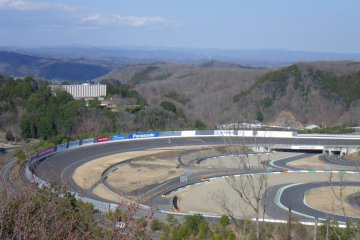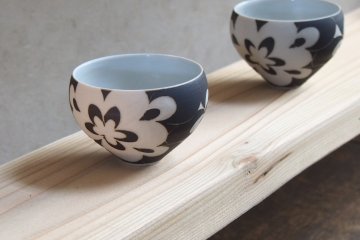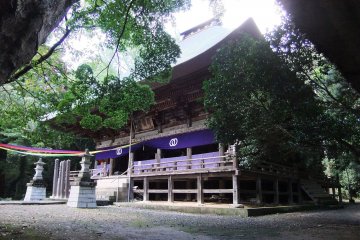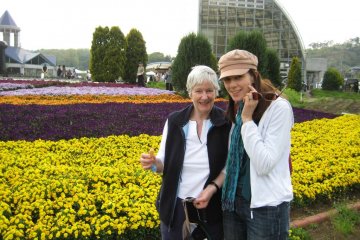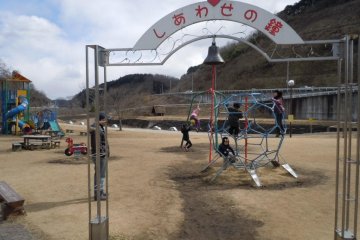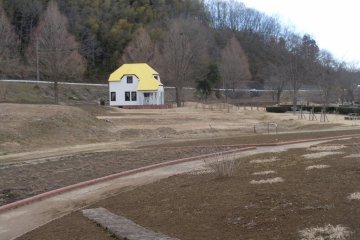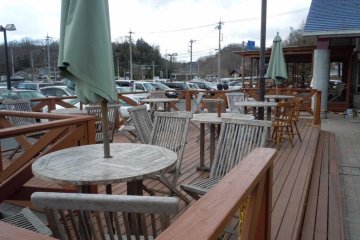The ladies behind the counter at Motegi Michi no Eki must have one bicep larger than the other. They mash fresh strawberries into hard ice-cream all day long. Each serving of 300-yen strawberry ice cream is made this way, before your eyes.
It may well have been the coldest day of the year when we dropped by for an ice cream, yet we had to wait for our serving. Mashing takes time. And strawberry ice-cream is very popular. Payment is through a vending machine at the counter.
Last weekend, I had Yuzu-salt flavored ice cream while my son and husband had strawberry. There is also vanilla, black sesame, pumpkin, sweet potato and other flavors. Strawberry ice cream is offered in the winter until the end of strawberry season, about the first week of May. Fresh blueberry ice cream is offered during the summer until September. Both fruits are locally grown.
Motegi Michi no Eki has another thing worth waiting for.
The Mouka line steam locomotive (SL) passes Motegi Michi no Eki at 12 noon and 2:30pm on the weekend. Ages before it comes, avid photographers bustle to secure coveted viewing spots all along the Mouka line. From Motegi Michi no Eki,you hear the train whistle well before you see the plume of dark smoke. A crowd gathers along the fence a few meters from the tracks. If this is not enough, down the road at Motegi Station you can see the steam locomotive pirouette on a turntable as music plays.
Our 4 year old son loved the playground at Motegi Michi no Eki. The Sunday we visited, there was also an assortment of plastic vehicles for kids to ride around outside.
Find “Old Gadou Kodato’s House,” a white, yellow-roofed American designed house adjacent to the playground, now almost a century old. The house was shipped in parts from the US and features central heating (sadly no longer operational). The former owner Gadou Kodato painted for Noritake. Explore the house for free between 10-4 on weekends and holidays.
We took my mother to Motegi the first week in May a few years ago. On the same day we enjoyed Mashiko Pottery Festival. She loved the colorful array of flowers planted at Motegi Michi no Eki. We also enjoyed a stroll along the riverside pedestrian path.
Like many other roadside stations in Japan, Motegi’s invigorates the local economy by showcasing local products. Motegi’s has a tourist information center, art gallery, regional products store, farmer’s market, fast-food (takoyaki, yuzu-salt chicken ramen, many flavors of taiyaki) and a restaurant (soba and tempura). That too required a wait. After about thirty minutes, we got a table nook in the high ceiling, glassed-in restaurant. Servings were ample and delicious. For two adults and a small child, lunch set us back Y 2600.
Motegi Michi-no-eki was undergoing renovations when we visited. Construction was completed by March 1, 2013. I wait for my next chance to go there.



